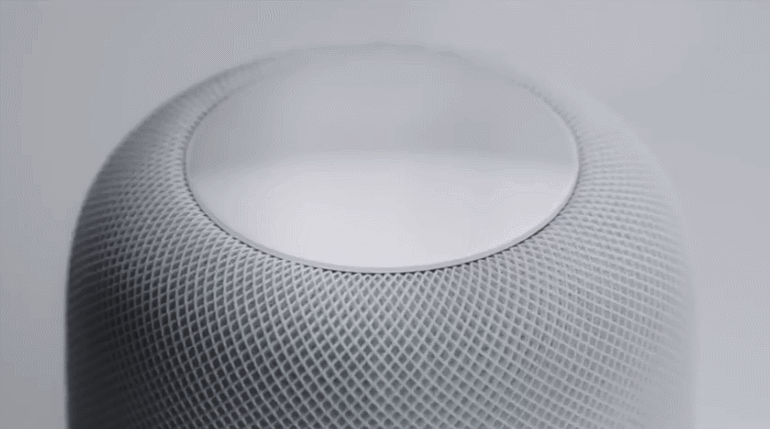After missing the critical holiday shopping season, Apple has jumped into the voice speaker wars with the HomePod smart speaker, a device that will use its Siri voice assistant and compete against offerings from Amazon and Google.
Apple said on Tuesday it will start taking online orders for its HomePod smart speaker on Friday in the US, United Kingdom and Australia, just over a month later than initially planned.
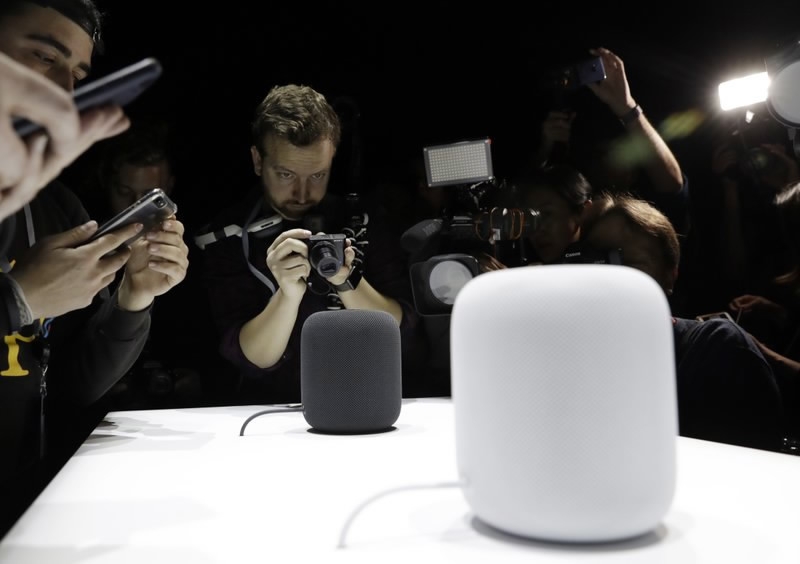
File: The HomePod speaker is photographed in a a showroom during an announcement of new products at the Apple Worldwide Developers Conference in San Jose, California, US, on June 5, 2017. /AP Photo
File: The HomePod speaker is photographed in a a showroom during an announcement of new products at the Apple Worldwide Developers Conference in San Jose, California, US, on June 5, 2017. /AP Photo
The 349-US-dollar voice-controlled speaker, introduced in June and originally scheduled for a December release, can make music suggestions and adjust home temperatures. The speaker also will be able to send messages and play news updates from National Public Radio and CNN, Apple said in
a release.
Analysts have debated the impact of the shipping delay on the HomePod’s eventual success. Apple has forecast between 84 billion and 87 billion US dollars in revenue for the holiday – mostly driven by sales of its 999-US-dollar iPhone X – so it is unlikely that missing a few weeks of sales of the HomePod will affect its financial results, Bob O‘Donnell, founder of Technalysis Research, told reporters in November.
The bigger danger for Apple, analysts said, is that consumers bought a rival speaker over the holiday season and have no immediate need for Apple’s new product.
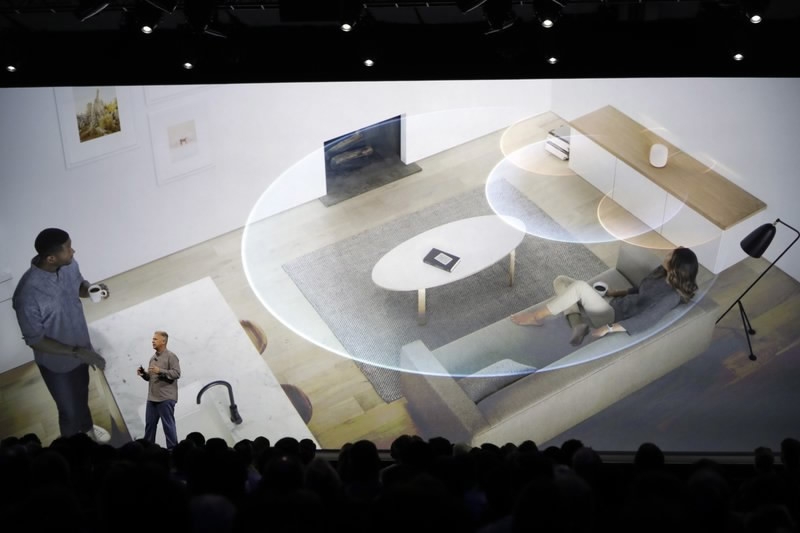
File: Phil Schiller, Apple’s senior vice president of worldwide marketing, introduces the HomePod speaker at the Apple Worldwide Developers Conference in San Jose, California, US, on June 5, 2017. /AP Photo
File: Phil Schiller, Apple’s senior vice president of worldwide marketing, introduces the HomePod speaker at the Apple Worldwide Developers Conference in San Jose, California, US, on June 5, 2017. /AP Photo
Both Amazon’s Echo and Google’s Home speakers have been expanding their reach into people’s homes since Apple announced the HomePod last June. Amazon and Google also are selling their speakers for substantially less, with streamlined versions of their devices available for below 50 US dollars.
Like its rivals, the HomePod includes a voice-activated assistant to help people manage their homes and the rest of their lives. Apple relies on Siri to process commands while Amazon leans on Alexa and Google features the eponymous Assistant.
All three companies are trying to build digital command centers within homes in an attempt to sell some of their other products.
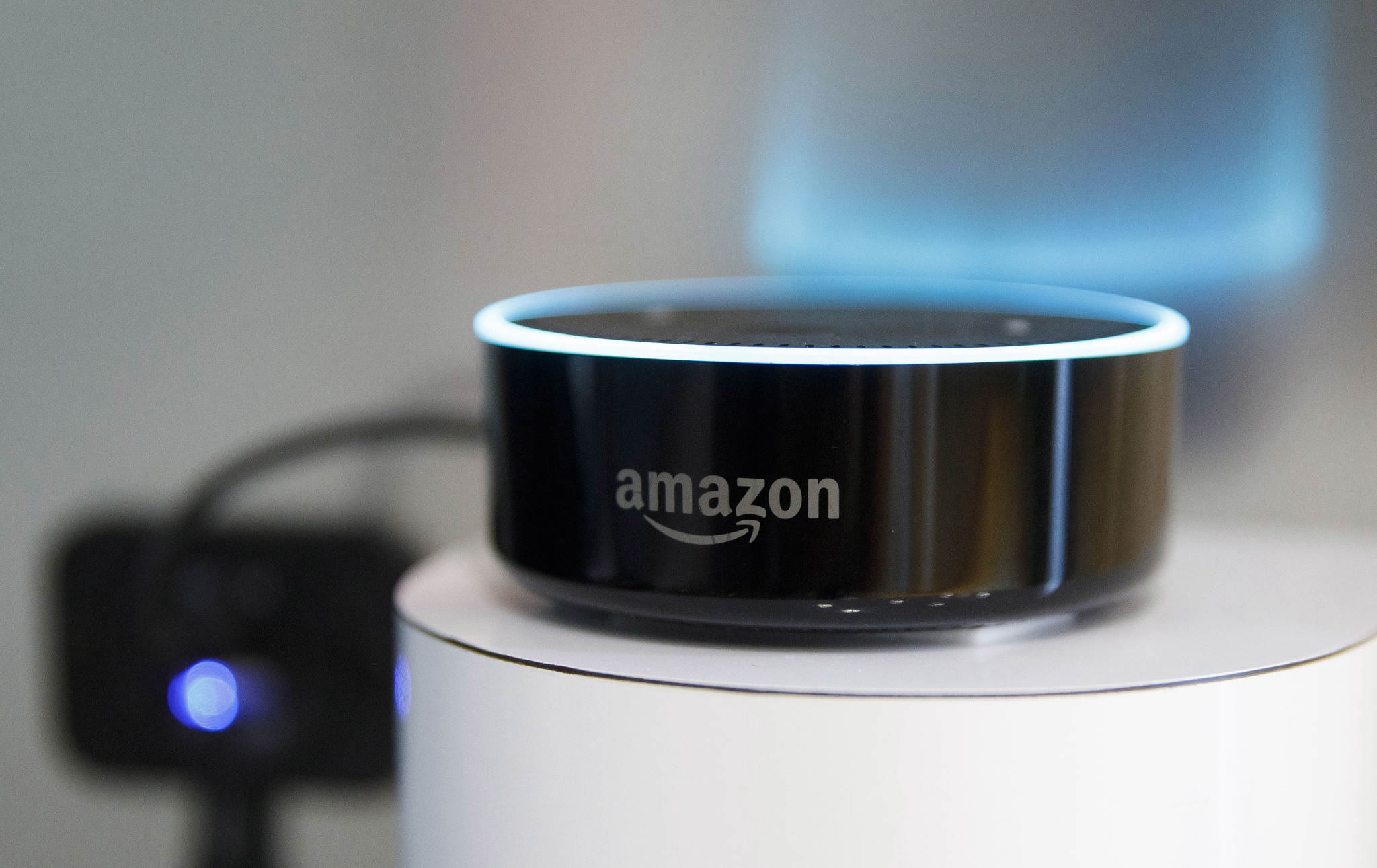
File: An Amazon Echo Dot device is displayed at the 2018 Consumer Electronics Show (CES) in Las Vegas, Nevada, US, on January 11, 2018. /VCG Photo
File: An Amazon Echo Dot device is displayed at the 2018 Consumer Electronics Show (CES) in Las Vegas, Nevada, US, on January 11, 2018. /VCG Photo
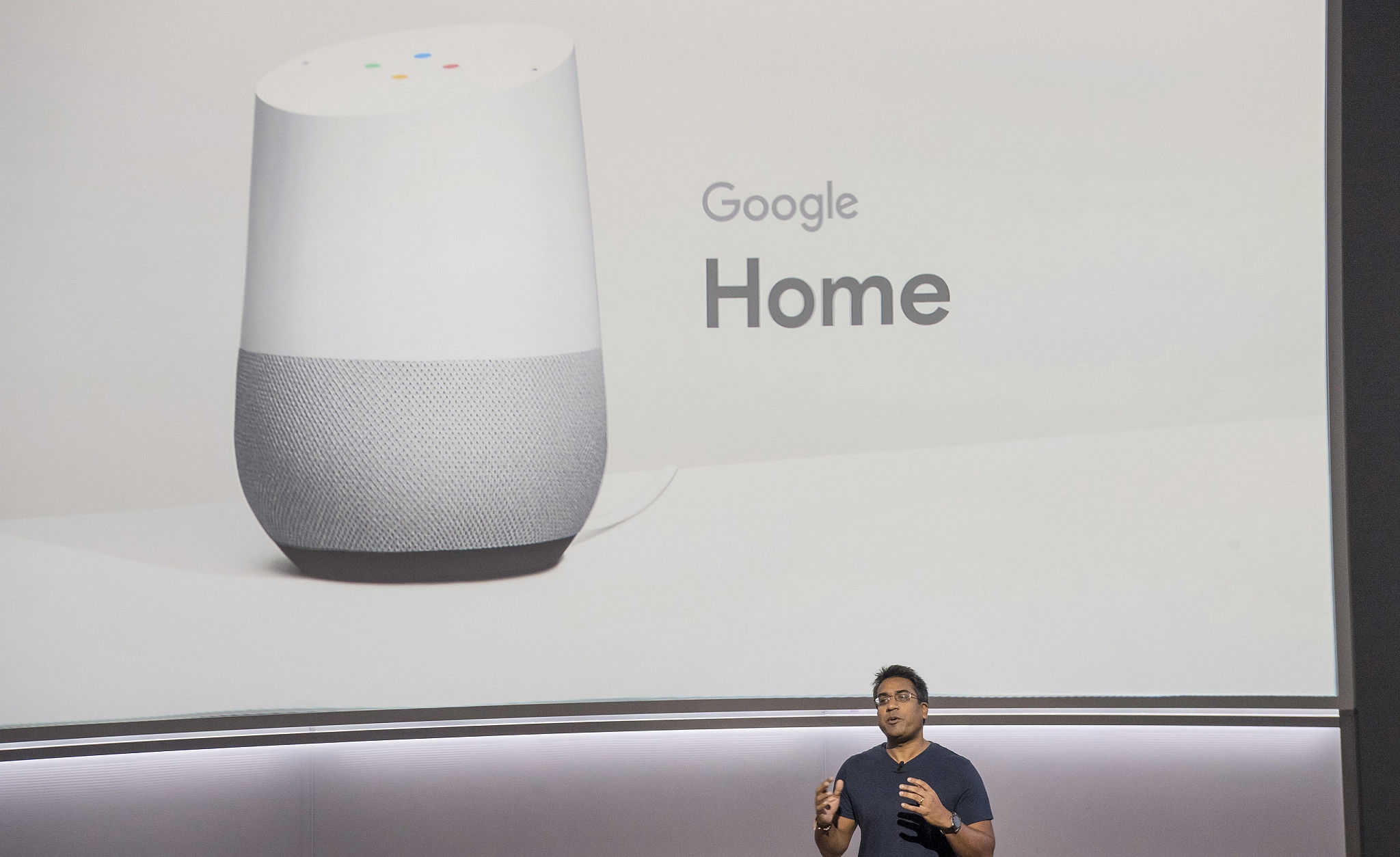
File: Rishi Chandra, senior product manager of Google, speaks about the Google Home voice speaker during a product launch event in San Francisco, California, US, on October 4, 2017. /VCG Photo
File: Rishi Chandra, senior product manager of Google, speaks about the Google Home voice speaker during a product launch event in San Francisco, California, US, on October 4, 2017. /VCG Photo
Apple also is counting on HomePod to boost subscriptions to Apple Music and block the rise of rival Spotify. The smart speakers from Google and Amazon let users give voice commands to play Spotify but Apple Music does not work on the rival devices.
Trip Miller, managing partner at Gullane Capital and an Apple investor, said he’s concerned that Apple has focused the HomePod too narrowly on playing music with high quality sound. Rivals speakers like the Amazon Echo can be used for a wider variety of tasks, like ordering a pizza or summoning a car from ride-hailing services.
“I wonder if they’re pigeonholing themselves a bit with this product, when a much broader offering has been proven by competitors to be pretty darn attractive,” Miller said.
Source(s): AP
,Reuters

